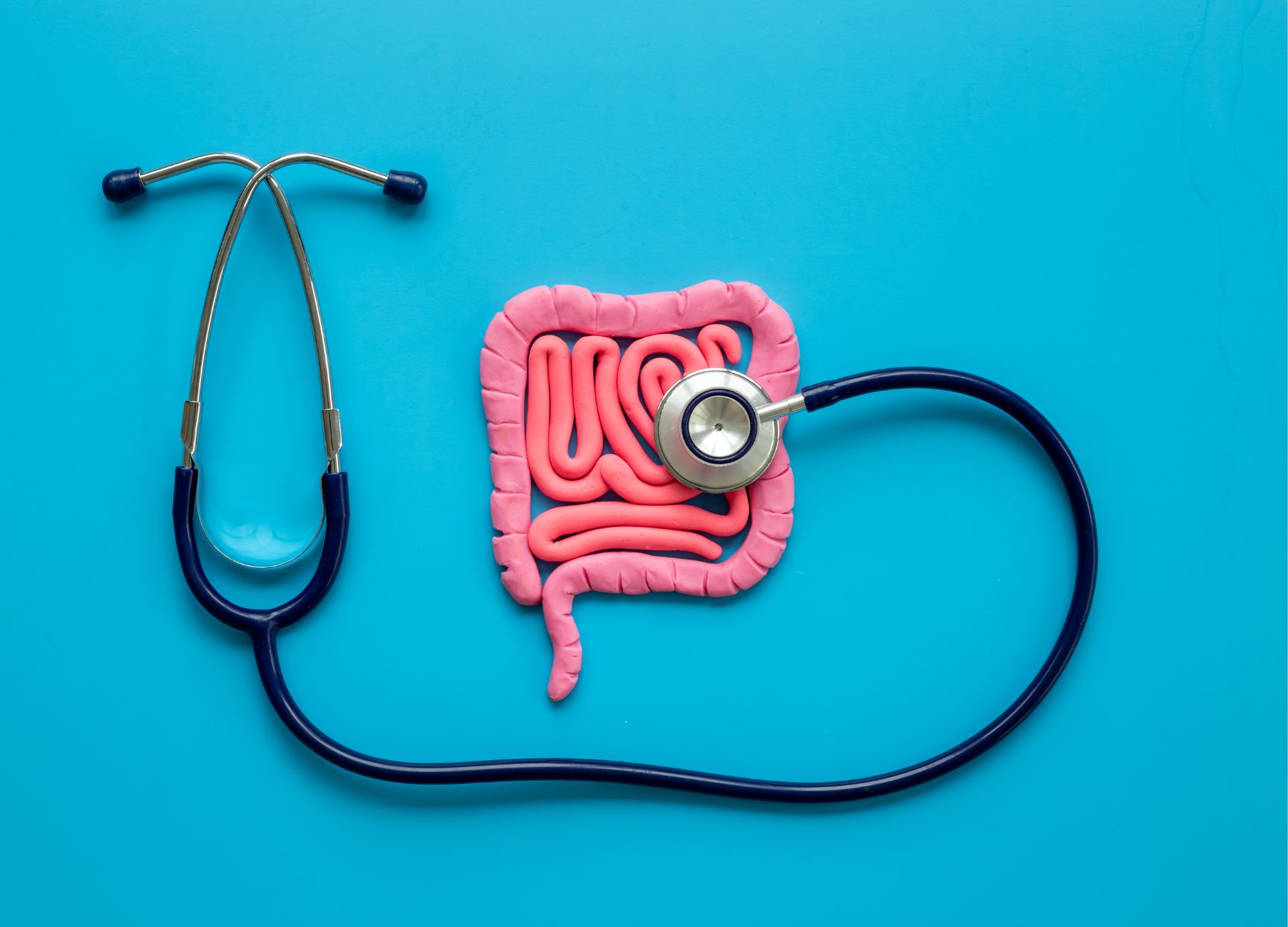
Dr Emily Porter
Specialist expertise: Endocrinology, Dietitian, Nutritional Therapy, Irritable Bowel Syndrome, Gut Health Optimisation, Gastroenterology, Nutrition, Inflammatory Bowel Disease, Digestive Health.
It's estimated that as many as 40% of people worldwide may experience functional gut symptoms, and many more have other gastrointestinal conditions, meaning that most of us are likely to encounter some level of gut symptoms during our life. But what are the most common digestive issues and at what point should you seek professional advice if you are experiencing any of these? Dr Emily Porter (PhD, RD) shares the digestive concerns that we frequently support people with at The Gut Health Clinic.

Firstly, it’s important to mention that there are some medical ‘red flags’ for gut issues that may be associated with an underlying health condition. If you have any of these, then please speak to your GP straight away:
Once these have been investigated further, then it might be worth looking at how diet and lifestyle changes could improve troublesome gut symptoms, which is where a registered dietitian can provide invaluable support.
Unfortunately, it’s rare to experience just one gut symptom in isolation. For example, if you aren’t going to the toilet regularly then you are more likely to experience some bloating and tummy pain too. We often see people struggling with fluctuating bowel habits, which can be really frustrating to manage on your own. However, addressing the root cause can often alleviate not just the irregularity but other digestive issues as well.
Constipation can be caused by diet or lifestyle factors, but other factors, such as health conditions or medications, may also play a role. First-line advice often centres around fibre, fluid and movement (alongside some other handy hacks such as toilet position) but this looks different for everyone. If you have tried these methods to relieve constipation with no success, then speaking to a medical professional may be the next step.
At the other end of the scale, diarrhoea can have a huge impact on day-to-day activities, particularly if you are having to rush to the bathroom frequently. Sometimes, we can pinpoint potential causes... dodgy takeaway or side effects of antibiotics, anyone? Other times it may happen more when you are stressed (this is the gut-brain axis kicking in) or there may be no obvious explanation at all. Keep an eye out for anything that makes this worse and avoid it if possible. Common irritants, or things that can increase how quickly food moves through the gut, include caffeine, spicy foods or high-fat foods.
It’s also important to notice any changes in colour of stools. For example, certain conditions can impair the body’s ability to digest fat, often resulting in pale, yellowish-orange stools that may appear oily or greasy. Any blood, whether bright or dark red, should be something to speak to your doctor as soon as possible.
The location of your abdominal pain can often provide clues about its cause, which is an important reason to take note of this and let your healthcare professional know.
Upper abdominal pain around the breastbone and ribcage may indicate reflux or heartburn, or it could be due to an underlying medical condition, such as small intestinal bacterial overgrowth or side effects from certain medications. Interestingly, this issue often responds well not only to dietary changes but also to lifestyle modifications. Strategies such as avoiding late-night meals, sleeping with the head elevated, and practising diaphragmatic breathing to support the oesophagal sphincter—the trapdoor that prevents stomach acid from rising into the windpipe — can all be beneficial. However, if you have any difficulty swallowing, or have a family history of oesophageal or stomach cancer, then these are red flags to chat to a doctor.
A little gas and bloating after a big meal rich in plant-based fibre is totally normal and just means that your gut bacteria are actively functioning. But if it is impacting your quality of life then it may be time to work with a healthcare professional, such as a gut specialist dietitian, who is equipped with the skills to help you formulate a plan that is most suitable for your symptoms.
Similar to abdominal pain, bloating can also occur in different areas of the abdomen. For example, more central abdominal bloating often responds well to dietary changes whereas lower pelvic pain may require a referral to another speciality. A bubbling feeling in the lower left of your tummy could be gas moving through the large intestine, and this is often linked to tummy pain if your gut is super sensitive to this gas production. Therefore, strategies to manage the amount of gas entering, being produced, or getting trapped in the gut can help relieve some of these symptoms.
It's a lot to take in, but hopefully this gives you an insight into how we begin to identify the causes of your digestive issues and the potential changes that may help. But if you're feeling a little overwhelmed and unsure where to start, then read on.
Knowing what is normal for you, and what may be considered abnormal is really important. We consider a normal bowel habit to be anything from going three times a day to three times a week!
However, we often see people who are dealing with daily digestive issues who don't realise that this doesn't have to be their 'normal'. If you have noticed a change in your gut symptoms, whether recently or some time ago, and if they are impacting your daily activities as well as your mental and physical well-being, it’s time to have them checked out.
Remember that if you are experiencing any of the ‘red flag’ symptoms mentioned at the beginning of the blog, such as blood in your poo, unexplained weight loss or a family history of some cancers, then it’s definitely time to speak to your doctor.
Whether seeking professional advice or not, keeping a food and symptom diary can be incredibly helpful. Remember to also note other factors, such as sleep, movement, mood, and hormones, as these can all impact gut symptoms as well.
In conclusion, consulting with a gut specialist dietitian at Welbeck private digestive clinic may be the most effective way to identify your next steps. They can assist you in various ways, from suggesting blood or stool tests to rule out any medical conditions to implementing personalised dietary changes and teaching you how to manage the gut-brain axis. A registered dietitian is uniquely equipped to help you on your journey toward better digestive health.
Provided for you by Dr Emily Porter, a gut specialist dietitian from The Gut Health Clinic. We provide specialist support for all your nutritional needs under the excellent care of OneWelbeck.
If you require any support, get in touch today.
Dr Emily Porter (PhD, RD) is a registered dietitian with HCPC who specialises in managing functional gut symptoms, particularly those associated with Irritable Bowel Syndrome, and the gut-metabolism and gut-immune axes. When necessary, she offers comprehensive support and guidance on specific diets, including low- and modified-FODMAP diets. Dr Porter takes a holistic approach, targeting the gut-brain axis to help clients achieve their nutritional goals related to specific medical conditions, symptom relief, or overall health and well-being.